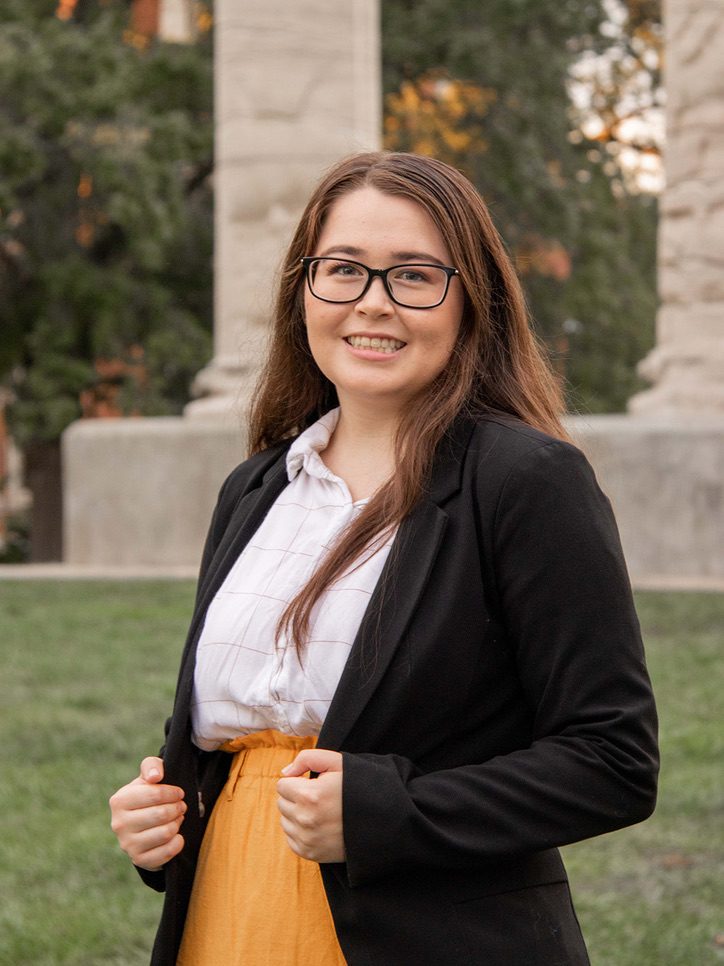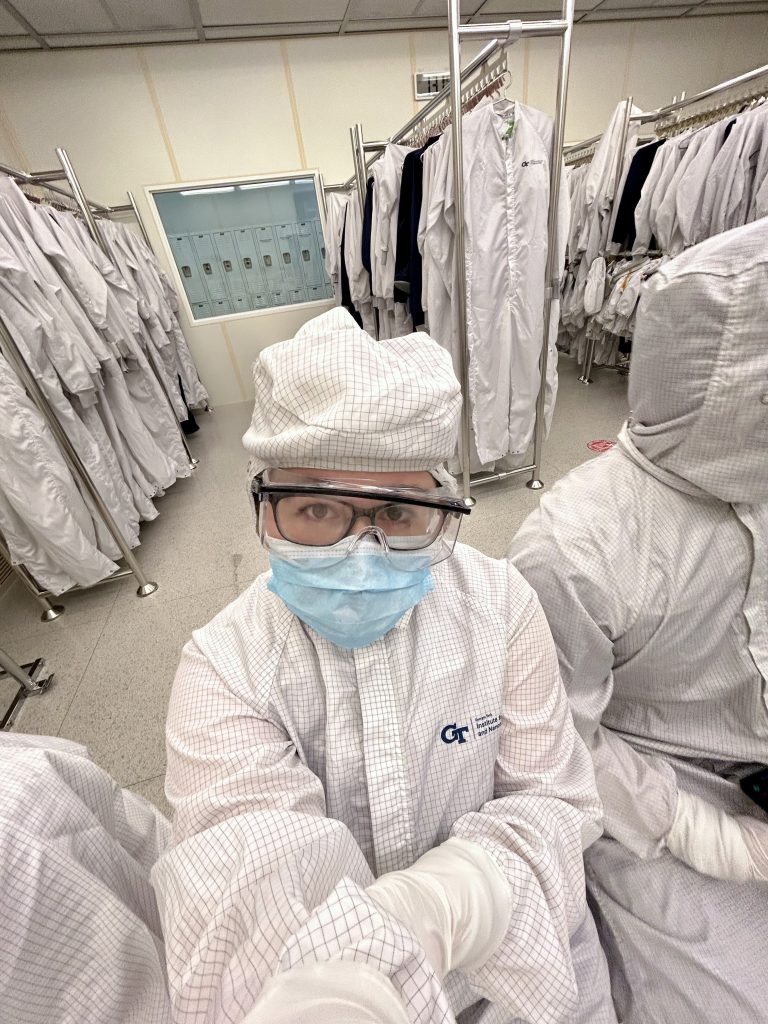July 08, 2024

Meet Marissa Moore, a senior chemical engineering student Participating in a Research Experiences for Undergraduates (REU) program this summer. Moore chose chemical engineering because she wanted to apply scientific principles to create practical, real-world applications.
“I love Chemical Engineering because I can pursue my research passion while looking for ways to improve the processes employed and the end-products obtained,” she said. “I’m pursuing the biochemical emphasis because I’d like to develop biomaterials to assist with treating neurological disorders. My younger sister had cerebral palsy and epilepsy, which inspired me to pursue solutions to improve the quality of life for other children and individuals in need.”
Moore’s REU is taking place at the Georgia Institute of Technology. We asked her a few questions about her experience this summer.
Why did you choose to participate in an REU?
After researching in Bret Ulery’s lab since 2021, I realized I needed to broaden my research scope and explore other areas. I wanted to experience research in another field, region and with another Principal Investigator (PI) to help inform my graduate school and research career decisions.
What is the program you participating in? What does it involve?
I am participating in the SENIC REU program through the Georgia Institute of Technology. This program is in collaboration with the National Nanotechnology Infrastructure Corridor, a group of numerous research institutions dedicated to advancing nanotechnology. At the end of the summer, all of the participants will present their work and hear from top researchers in the field.
What is your specific research project focusing on?
My project focuses on biodegradable acoustic triboelectric nanosensors, also known as “sound-sending BATS.” Essentially, we’re using the triboelectric effect, which produces static electricity, to harvest electricity from sound and vibrations.
What I’m working on is developing a fully biodegradable but effective version of a device to improve end-of-life outcomes for electronic devices. Applications of this include energy generation, implantable medical devices, wearable electronics and self-powered sensors.

What are you learning from your REU experience?
I have learned a ton about materials characterization and development. My previous research lies in polymer synthesis, so this application allows me to explore how polymers interact with each other and the surrounding environments. I’ve also had the opportunity to learn about different materials and applications, such as adhesives, which has dramatically expanded my research toolbox.
What are you enjoying most about your REU?
My favorite part of my REU is being fully invested in a research project. Juggling undergraduate research during the school year can sometimes be very challenging, so it’s nice to have the time to dive into a topic. It’s allowed me to quell any doubts I’ve had about a future career in research.
The other cool aspect of my REU is getting to work in a cleanroom. I’ve never done anything like it, and it is so exciting to “gown up” for work every day.
How did Mizzou Engineering prepare you for this REU?
Mizzou Engineering has taught me a multitude of skills that I apply every day in my work. For example, my involvement in student organizations has helped me become a better public speaker and improved my scientific communication. This is essential because I have to share my work every week.
Additionally, my participation in events – such as Show Me Research Week and the Fall Research Forum through the Engineering Undergraduate Research Fellowship – has prepared me to present my poster at the end of the summer. Within the classroom, I’ve also acquired various hard skills such as laboratory safety, Excel and Python, which have been very useful this summer.
What advice would you give other students considering an REU?
Anyone who is interested in an REU should go for it! I think it is a fantastic opportunity to explore the world of research and hands-on applications. These opportunities are especially geared toward underclassmen students who haven’t had any research experience, so they are a great way to get involved. REUs can be especially great for students who aren’t interested in or ready for an internship or co-op.
After spending the past three summers doing an REU, a co-op and research at Mizzou, I think all students should get involved with a variety of summer activities. Having the combined experience of all of these has helped grow my network and allowed me to know exactly what I want in my career.
Thanks for sharing!
Choose a university that encourages students to gain hands-on experience in engineering. Choose Mizzou Engineering!